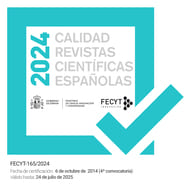The Conquest of Holidays. Brief History of Tourism in Argentina
DOI:
https://doi.org/10.25145/j.pasos.2012.10.091Keywords:
holidays, tourism, ArgentinaAbstract
Without a doubt, there is no better way to understand the evolution of tourism than to enter and discuss in depth good work in the field, such as that of Professor E. Pastori- who presents a synthesized but eloquent history of tourism as part of a phenomenal greater than what he calls leisure. Initially, E. Pastoriza (2011) recalls in his work The Conquest of the holidays the strange tension that occurs in the first summer zones in Argentina from the end of the 19th century since one of the biggest challenges was to adapt the conditions- The Committee on Legal Affairs and Citizens' Rights, Justice and Home Affairs, register as massive. In this way, summer holidays, the custom of the more affluent classes, gave rise to a less stylized form of mass culture, tourism. The conquest of the holidays in France in 1936, together with technological advances, laid the foundations for the advent of a new form of recreation that through the journey generated a great expectation. The process of democratization involving tourism brought benefits because the holiday culture (originally given for 3 months) was expanded by means of a true demonstration effect to other classes, but these social conquests brought certain frictions and tensions with other groups.Downloads
Publication Facts
Reviewer profiles N/A
Author statements
- Academic society
- PASOS. Revista de Turismo y Patrimonio Cultural
- Publisher
- Instituto Universitario de Investigación Social y Turismo. Universidad de La Laguna (España) - Instituto Universitario da Maia ISMAI (Portugal)
Downloads
Published
How to Cite
Issue
Section
License
I confirm that the work is original (of my/our authorship), and that it will not be submitted to other journals or publications until the final resolution of the review process in PASOS, RTPC.
I authorize the publication of my work by PASOS, PSTN of free and open access in any of the formats that I deem appropriate, for an indefinite period of time and as a non-remunerated collaboration.
Likewise, the author(s) understands that the published work may be linked or deposited on any server or included in other publications (republication), provided that the new place and/or new edition references the original publication and acknowledges the authorship and copyright ownership of PASOS RTPC publications.
Authors understand that a plagiarism-self-plagiarism check will be performed, and the article may be removed at any time from the editorial flow.










